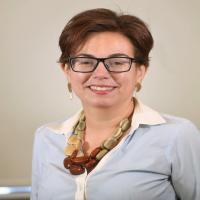Leadership Team
Silvia Martins, MD, PhD
- Professor of Epidemiology; PHIOS Director, Co-Director of the Substance Abuse Epidemiology T32
Dr. Silvia S. Martins is the Director of the Substance Use Epidemiology Unit of the Department of Epidemiology, Columbia University Mailman School of Public Health and of the Policy and Health Initiatives on Opioids and other Substances interdisciplinary group (PHIOS). She is also the co-director of the NIDA T32 Substance Abuse Epidemiology Training Program in the department ). She has co-authored >250 peer-reviewed epidemiological and substance use articles (>100 first or senior-authored), 90 of them led by her current or former mentees. She has served as PI or MPI of multiple NIH funded grants. Some of her notable research findings have focused on a typology of prescription drug monitoring programs and its impact on prescription opioid and heroin overdoses, machine learning techniques to better understand opioid policies associated with high-opioid prescribing, the effects of recreational cannabis laws in cannabis use outcomes in adolescents and adults in the US, and substance use and psychiatric disorders in child and adolescents in Brazil. She has received several awards for her research and mentoring, including, the 2017 Columbia University Mailman School of Public Health Dean's Award for Excellence in Mentoring and in 2021 the Columbia University Irving Medical Center Mentor of the Year Award. More recently, in 2021, she was selected as one of the School's 2021-2023 Tow Leadership Scholars and she received one of the 2021 Calderone Health Equity awards. Her current research focuses on consequences of medical and recreational cannabis laws in the U.S, the synergistic effects of opioid policies and cannabis policies on opioid-related harm outcomes in the U.S., the effects of opioid policies and substance use policies that target pregnant and postpartum women among women that use opioids in the U.S., and trends in drug overdoses in Latin America. She has been continuously funded by NIH since 2006 as a Principal Investigator.

Charles Branas, PhD
- Department of Epidemiology Chair; Gelman Professor of Epidemiology; PHIOS Co-Director
Dr. Branas has conducted research that extends from urban and rural areas in the US to communities across the globe, incorporating place-based interventions and human geography. He has led win-win science that generates new knowledge while simultaneously creating positive, real-world changes and providing health-enhancing resources for local communities. His pioneering work on geographic access to medical care has changed the healthcare landscape, leading to the designation of new hospitals and a series of national scientific replications in the US and other countries for many conditions: trauma, cancer, stroke, etc. His research on the geography and factors underpinning gun violence has been cited by landmark Supreme Court decisions, Congress, and the NIH Director. Dr. Branas has also led large-scale scientific work to transform thousands of vacant lots, abandoned buildings and other blighted spaces in improving the health and safety of entire communities. These are the first citywide randomized controlled trials of urban blight remediation and have shown this intervention to be a cost-effective solution to persistent urban health problems like gun violence. He has worked internationally on four continents and led multi-national efforts, producing extensive cohorts of developing nation scientists, national health metrics, and worldwide press coverage.
![]()

